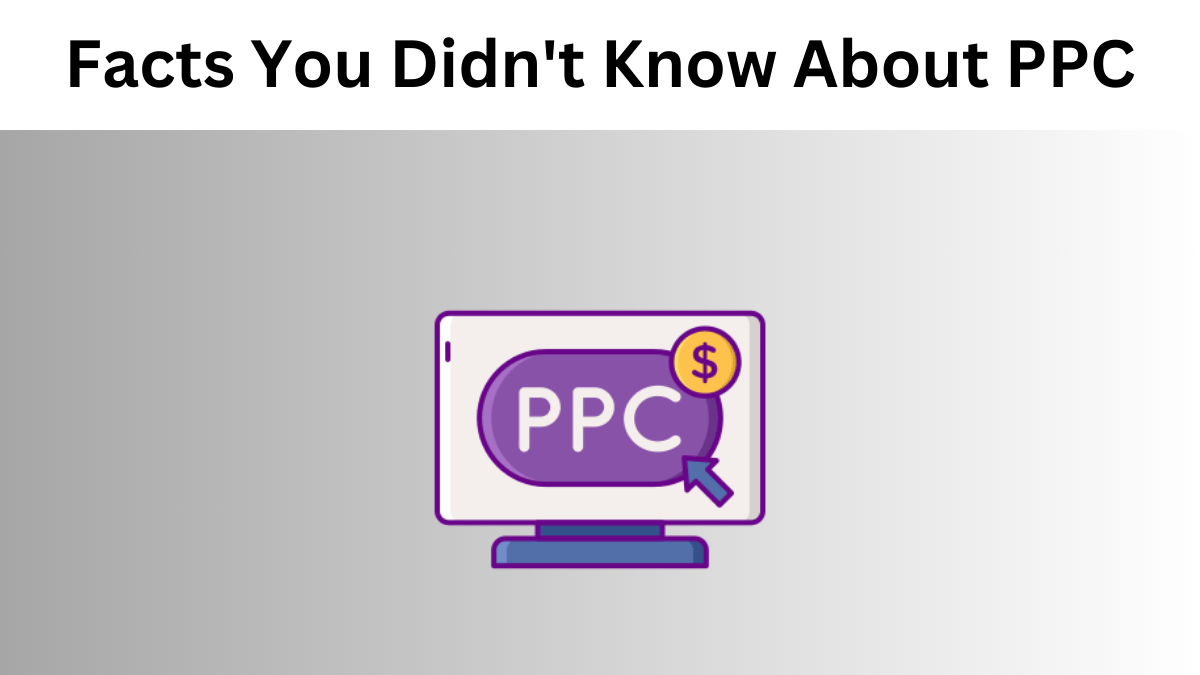10 PPC Facts You Probably Didn’t Know
Pay-per-click (PPC) advertising has become a cornerstone of digital marketing strategies for businesses of all sizes. From driving targeted traffic to generating leads and sales, PPC offers a flexible and measurable way to reach potential customers online. However, beyond its surface appeal, there are several lesser-known aspects and intricacies to PPC advertising that can significantly impact campaign success. We will also explore the importance of choosing a PPC management agency for your business’ advertising. But first, let’s get into 10 things you may not have known about PPC advertising.

Contents
1. Quality Score Matters More Than You Think:
Google Ads and other PPC platforms use a Quality Score metric to assess the relevance and quality of your ads, keywords, and landing pages. A higher Quality Score can lead to lower costs per click (CPC) and better ad positions, making it crucial to optimise your campaigns for relevance and user experience.
2. Ad Position Isn’t Everything:
While securing the top ad position may seem like the ultimate goal, it’s not always the most cost-effective strategy. Lower ad positions often have lower CPCs and can still yield profitable results, especially if your ads are highly targeted and relevant to the user’s search intent.
3. Negative Keywords Are Your Secret Weapon:
In addition to targeting relevant keywords, incorporating negative keywords into your PPC campaigns is essential for filtering out irrelevant traffic and maximising ad spend efficiency. Negative keywords prevent your ads from appearing for search queries that are unlikely to convert, saving you money and improving overall campaign performance.
4. Ad Extensions Boost Click-Through Rates:
Ad extensions provide additional information and functionality to your ads, such as sitelinks, callouts, and location extensions. Utilising ad extensions not only enhances the visibility and appeal of your ads but also improves click-through rates (CTRs) by providing users with more options to engage with your business.
5. Remarketing Can Drive Conversions:
Remarketing, or retargeting, allows you to re-engage with users who have previously visited your website but did not convert. By displaying targeted ads to these past visitors as they browse the web, remarketing campaigns can encourage them to return to your site and complete desired actions, such as making a purchase or filling out a form.
6. Ad Scheduling Can Optimise Performance:
Timing is crucial in PPC advertising, and ad scheduling allows you to control when your ads are displayed based on day of the week and time of day. Analyse your campaign data to identify peak performance periods and schedule your ads accordingly to maximise visibility during high-converting times.
7. Ad Testing Is a Continuous Process:
Effective PPC advertising requires ongoing testing and optimization to uncover what resonates best with your target audience. Test different ad copy variations, landing page designs, and targeting options to identify winning combinations that drive the highest return on investment (ROI).
8. Geographic Targeting Is Highly Granular:
PPC platforms offer sophisticated geographic targeting options that allow you to reach users based on their location, down to specific cities, regions, or even postal codes. Leveraging geographic targeting enables you to tailor your messaging and bids to local markets, increasing relevance and driving conversions.
9. Ad Fraud Can Impact Campaign Performance:
Ad fraud, including click fraud and impression fraud, is a pervasive issue in the digital advertising ecosystem. Fraudulent activities can inflate campaign costs, skew performance metrics, and undermine the effectiveness of your PPC efforts. Implementing fraud detection measures and monitoring campaign data closely can help mitigate the impact of ad fraud.
10. Conversion Tracking Is Essential for ROI:
Tracking conversions is essential for measuring the success of your PPC campaigns and optimising for maximum ROI. Set up conversion tracking pixels or tags to monitor key actions such as form submissions, purchases, or phone calls originating from your ads. By accurately attributing conversions to specific ad campaigns, keywords, and channels, you can make data-driven decisions to optimise performance and drive business growth.
“Well That Was a Lot of Information, Should I Just Pay Someone to Manage It for Me?”
More often than not, you are better off employing somebody to look after the campaign for you. Engaging a PPC agency can offer numerous benefits for businesses looking to maximise the effectiveness of their digital advertising efforts. While some businesses may choose to manage their PPC campaigns in-house, partnering with a specialised agency can provide expertise, resources, and strategic guidance that can significantly impact campaign success. Here are several reasons why it’s important to engage a PPC agency:
Expertise and Experience: PPC agencies typically employ experienced professionals who specialise in digital advertising and have in-depth knowledge of PPC platforms, algorithms, and best practices. These experts stay abreast of industry trends, updates, and changes in advertising policies.
Time and Resource Savings: Managing PPC campaigns requires a significant investment of time and resources, from keyword research and ad creation to ongoing monitoring, optimization, and analysis. By outsourcing PPC management to an agency, businesses can free up internal resources.
Access to Advanced Tools and Technologies: PPC agencies often have access to advanced tools, technologies, and analytical platforms that may not be readily available to businesses operating independently.
Strategic Planning and Optimization: PPC agencies take a strategic approach to campaign planning and optimization, focusing on maximising ROI and achieving business objectives based on real-world data.
Scalability and Flexibility: As businesses grow and evolve, their PPC advertising needs may change accordingly. PPC agencies offer scalability and flexibility, allowing businesses to adjust campaign budgets, expand into new markets, or launch seasonal promotions with ease.
Performance Monitoring and Reporting: PPC agencies provide detailed performance monitoring and reporting, offering transparency and accountability for campaign results. Through regular reports and analytics dashboards, businesses gain insights into key performance metrics, such as click-through rates, conversion rates, and return on ad spend (ROAS).
Stay Ahead of Competition: In today’s competitive digital landscape, staying ahead of the competition is essential for business success. PPC agencies leverage their expertise, insights, and industry knowledge to help businesses outperform competitors, capture market share, and maintain a competitive edge in the online marketplace.
Conclusion
PPC advertising offers a wealth of opportunities for businesses to reach their target audience, drive engagement, and achieve their marketing objectives. By understanding and leveraging these lesser-known aspects of PPC, marketers can elevate their campaigns to new heights of effectiveness and efficiency. Whether you’re a seasoned PPC practitioner or just getting started, exploring these nuances can unlock hidden potential and propel your advertising efforts to success in the competitive digital landscape.
